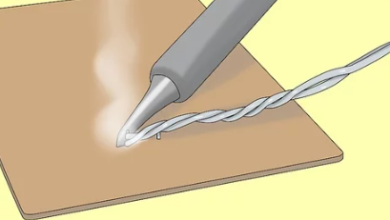1Should We File for Chapter 7 Bankruptcy, Will We Lose Our Tax Refunds?

It’s that time of year again, tax time. Understandably, folks filing for Chapter 7 Business Bankruptcy or contemplating doing so are concerned about what will happen to their tax refunds. If you file for bankruptcy and follow all of the rules, you won’t lose your tax refund. When filing for bankruptcy, most debtors lose their tax refunds because they either do not have an attorney or hire an inexperienced or irresponsible one who fails to report and exclude the tax refunds properly.
Probate Of Insolvency Estate
The debtor’s assets are transferred to the bankruptcy trustee once the bankruptcy petition is filed. A bankruptcy trustee manages the bankruptcy estate. The trustee is responsible for selling off the debtor’s assets to pay back the creditors. The definition of “asset” in the Bankruptcy Code is extremely all-encompassing. Debtors’ assets can be items they own, things they have the right to acquire in the future, or things they could acquire if certain conditions were met. It is crucial to get the services of an experienced and thorough bankruptcy attorney because it is not always evident to the layman what constitutes an asset.
Which Income Tax Refunds Belong To The Company’s Creditors?
In every Chapter 7 bankruptcy case, tax returns or the right to receive tax refunds is considered an asset. When filing for bankruptcy, most debtors know that any pending tax returns are an asset. The vast majority of bankruptcies also include tax refunds expected to arrive in the same calendar year as the bankruptcy filing. Most debtors don’t know that a percentage of their tax refunds from the year their bankruptcy petition was filed is also considered an asset. So, if you filed for bankruptcy in 2014, a portion of any tax returns you’re due to receive for 2014 will become the property of the bankruptcy estate, even if they aren’t received until 2015.
The portion of a tax refund that becomes part of the bankruptcy estate also depends on the debtor’s marital status and the way the returns are filed. If a spouse is not included in the bankruptcy filing and the tax returns that resulted in the refund were filed jointly, then only half of the refund will be included as an asset of the bankruptcy estate.
Exemptions: A Safeguard For Tax Returns
One of the goals of the Bankruptcy Code was to let people start over financially. This new beginning includes protecting the debtor from complete financial ruin at the hands of the trustee. Therefore, the Bankruptcy Code has provisions for exemptions.
A “wildcard” exemption safeguards tax refunds the same way it protects funds in a bank account. In its current iteration, the wildcard exception caps out at $12,725.00 per debtor (the amount is periodically adjusted). However, the ownership of other assets may restrict the capacity to exempt a tax refund. There could be a problem with liquidation if the debtor has additional assets that need exemption and a wild card is the only method to safeguard them.
Issues related to liquidation can be identified, explored, and prepared for with the help of an experienced bankruptcy attorney. If you file for bankruptcy before you expect your tax refund, you can avoid a potential liquidation problem. An attorney can help you decide if changing your withholding or using your return on essentials will assist. Always consult an attorney before spending down your tax refund to avoid liquidation so that you can be sure the court will recognize the costs as reasonable.
Final Thoughts
Getting a tax refund after filing Chapter 7 is not guaranteed. The bankruptcy case filing should be timed strategically, and full disclosure and correct utilization of exemptions are essential. You can keep most or all of your tax refunds if you hire a competent bankruptcy attorney to handle your case.
Read More: Statement of writing




